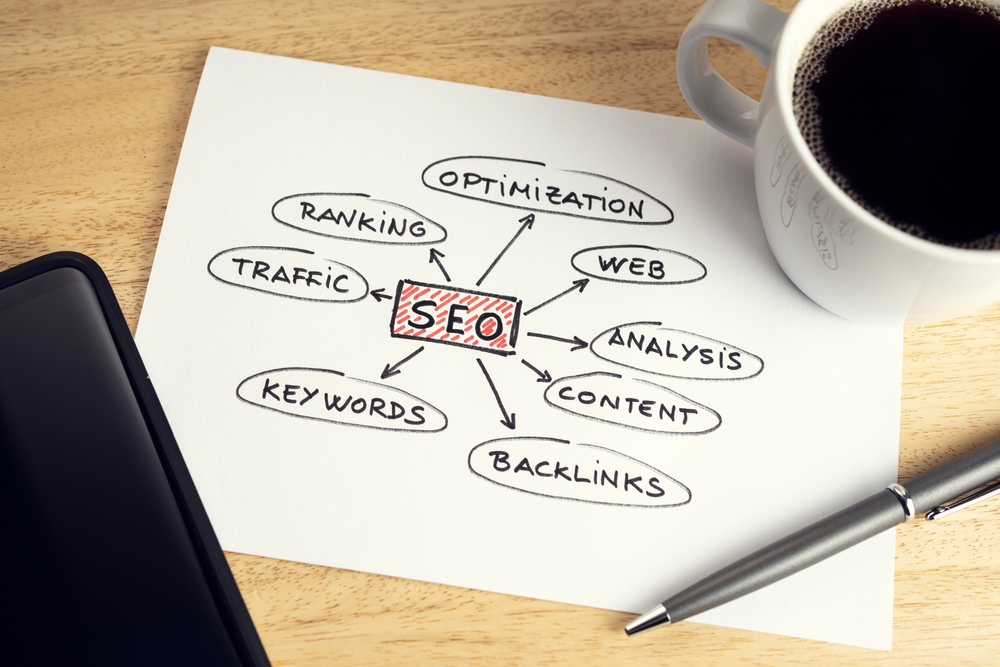
Boost Your Website's Ranking with Top SEO and Link Building Hacks

In today's digital age, having a strong online presence is crucial for the success of any business. With millions of websites competing for attention, it's important to employ effective strategies to boost your website's ranking in search engine results. One such strategy is search engine optimization ( SEO ) and link building. By optimizing your website and building quality links, you can improve your website's visibility, attract more organic traffic, and ultimately increase your revenue. In this article, we will discuss some top SEO/SEM and link building hacks to help you achieve these goals.
1. Conduct Comprehensive Keyword ResearchKeywords play a vital role in SEO (search engine optimization) . They are the search terms that users type into search engines when looking for specific information or products. By incorporating relevant keywords into your website's content, meta tags, and URLs, you can increase your chances of appearing in search results for those particular queries. However, it's essential to conduct comprehensive keyword research to identify the most relevant and high-ranking keywords in your niche. Several tools, such as Google Keyword Planner and SEMrush, can help you find the most popular and relevant keywords for your website.
2. Optimize Your On-Page Elements
On-page optimization involves optimizing various elements on your website to make them search engine-friendly. These elements include title tags, meta descriptions, header tags, and URLs. By incorporating your target keywords into these elements, you can signal to search engines what your website is about, and improve your chances of ranking higher in search results. Ensure that your title tags are concise and accurately reflect the content of each page. Meta descriptions should be compelling and include relevant keywords to attract clicks from search engine users. Equally important is using header tags (H1, H2, H3, etc.) to structure your content and make it more scannable for both users and search engines.
3. Create High-Quality, Relevant Content
Content is king when it comes to SEM/SEO . It's not just about having any content on your website; it's about having high-quality, relevant, and engaging content that provides value to your target audience. Search engines prioritize websites that offer valuable content that satisfies users' search intent. Ensure that your content is well-written, comprehensive, and optimized with relevant keywords. Include visual content, such as images and videos, to enhance engagement on your website. Regularly updating your content with fresh and informative articles can also help improve your website's ranking.
4. Build High-Quality Backlinks
Link building is a critical aspect of SEO (or SEM) that involves obtaining links from other websites to your own. In the eyes of search engines, backlinks act as votes of confidence for your website. However, not all backlinks are created equal. Quality matters more than quantity in link building. Focus on acquiring backlinks from reputable websites that are relevant to your industry or niche. Guest blogging, reaching out to industry influencers for collaborations, and creating valuable content that naturally attracts backlinks are effective strategies for building high-quality backlinks. Avoid spammy tactics, such as buying links, as they can result in penalties from search engines.
5. Improve Website Speed and Mobile-Friendliness
In an era where most internet users access websites on their mobile devices, having a mobile-friendly website is more important than ever. Moreover, website speed is another critical factor that can influence your website's ranking. Slow-loading websites often lead to higher bounce rates and a negative user experience. Ensure that your website is optimized for mobile devices and loads quickly by compressing images, minimizing HTTP requests, and using caching techniques. Google's PageSpeed Insights tool can provide valuable insights and suggestions for improving your website's loading speed.
FAQs (Frequently Asked Questions):
Q1. How long does it take to see results from SEO efforts?A1. SEO is a long-term strategy, and it can take several months to see significant improvements in your website's ranking. However, with consistent efforts, you can start to notice positive changes within a few months.
Q2. Are there any risks associated with link building?
A2. While link building is essential for SEO, it's important to be cautious and avoid engaging in spammy tactics or acquiring low-quality links. Such practices can harm your website's ranking and even result in penalties from search engines.
Q3. Should I focus on on-page optimization or off-page optimization?
A3. Both on-page and off-page optimization are crucial for a comprehensive SEO strategy. On-page optimization helps search engines understand your website's content, while off-page optimization (including link building) signals to search engines the relevance and authority of your website.
Q4. Are there any SEO shortcuts or quick fixes?
A4. SEO is an ongoing process that requires consistent effort and continuous optimization. There are no quick fixes or shortcuts that guarantee immediate results. It's essential to invest time and effort into implementing effective SEO strategies.
Q5. Can social media marketing help with SEO?
A5. While social media signals are not direct ranking factors, having a strong social media presence can indirectly benefit your SEO efforts. It can help increase brand visibility, attract more traffic, and potentially earn high-quality backlinks, all of which can positively impact your website's ranking.
In conclusion, implementing effective SEO and link building strategies is crucial for boosting your website's ranking and attracting more organic traffic. By conducting comprehensive keyword research, optimizing on-page elements, creating high-quality content, building high-quality backlinks, and improving website speed and mobile-friendliness, you can significantly improve your website's visibility in search engine results. Remember, SEO is an ongoing process, and it requires consistent effort to achieve long-term success.
Other useful resources
- https://en.wikipedia.org/wiki/Search_engine_optimization
- https://simple.wikipedia.org/wiki/Search_engine_optimization
- https://en.wikipedia.org/wiki/Search_engine_marketing